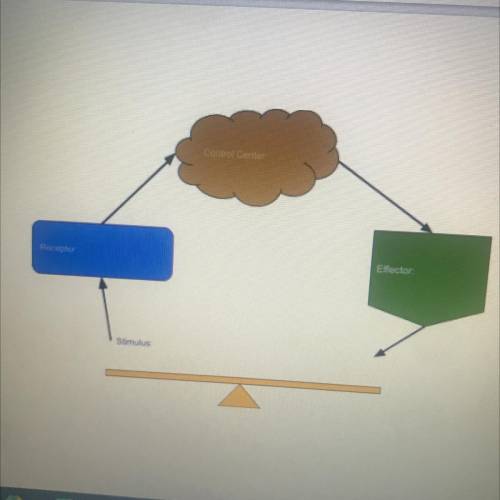
Biology, 08.04.2021 16:40 davis52202
Heart Rate
Nerve cells monitor blood for changes. If there's too much Carbon Dioxide (CO) and not enough
Oxygen (O), the oxygen sensing nerve cells send a signal to the brain. The brain sends a signal
to the pacemaker cells in the heart, which makes the heart beats faster, pushing more blood
Find the stimulus and control center effector and receptor
No link or it will be reported


Answers: 1


Another question on Biology

Biology, 21.06.2019 23:20
What are the most explosive events that occur on the sun? umbras solar flares solar winds prominences
Answers: 2

Biology, 22.06.2019 05:10
What would happen if the tubing with the yellow band was placed in a beaker of distilled water?
Answers: 2

Biology, 22.06.2019 07:30
The pressurized plants and fungi mentioned in the video have some surprising similarities. what differences would you expect them to have?
Answers: 1

Biology, 22.06.2019 07:50
45 points how are people today being protected from tsunamis? earthquake data is analyzed to detemrine if a tsunami is likely, and if so, warnings are sent out. areas in tsunami risk zones are no longer heavily populated. radar is used to measure wave heights regularly. meteorologists study the winds to determine if wave heights will be large.
Answers: 1
You know the right answer?
Heart Rate
Nerve cells monitor blood for changes. If there's too much Carbon Dioxide (CO) and not e...
Questions

Mathematics, 17.02.2021 05:00

Mathematics, 17.02.2021 05:00

History, 17.02.2021 05:00

Biology, 17.02.2021 05:00

Biology, 17.02.2021 05:00






Spanish, 17.02.2021 05:00


Business, 17.02.2021 05:00

English, 17.02.2021 05:00

Mathematics, 17.02.2021 05:00





Mathematics, 17.02.2021 05:00



